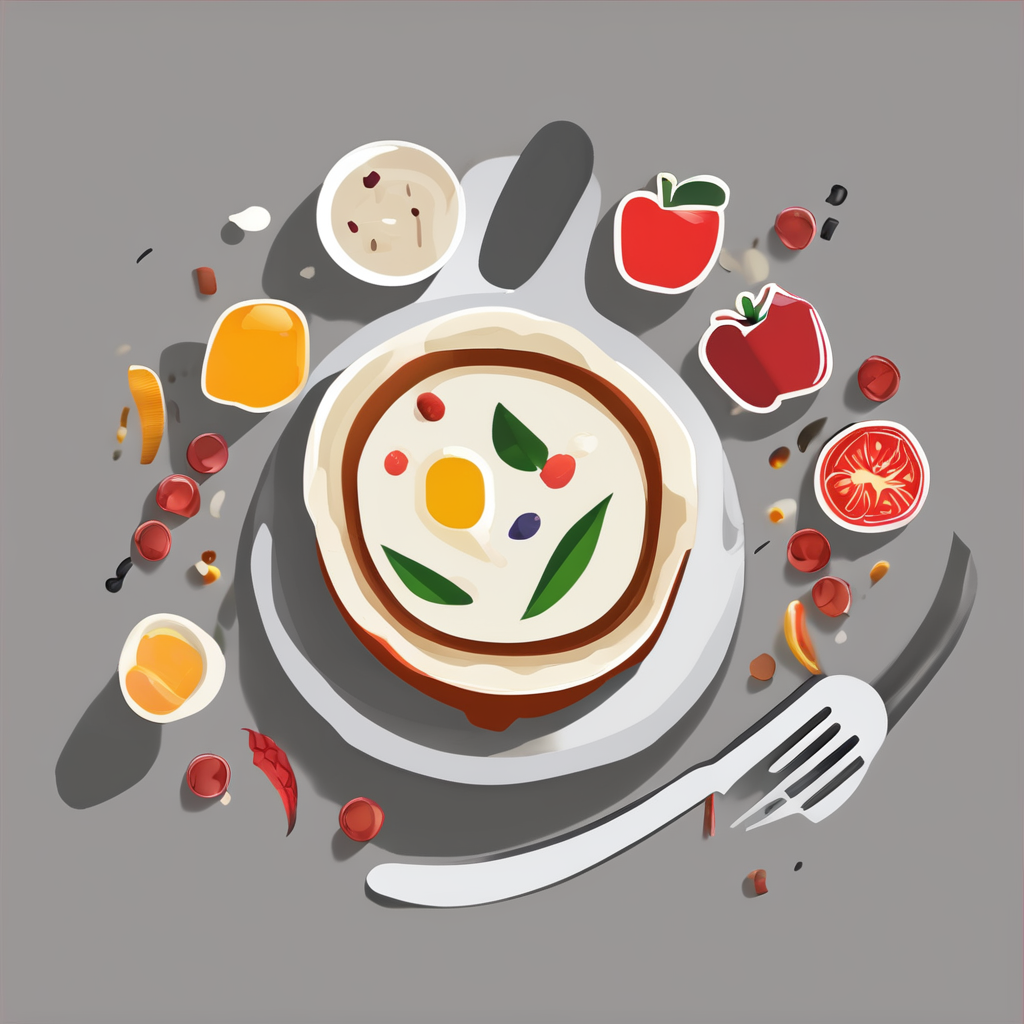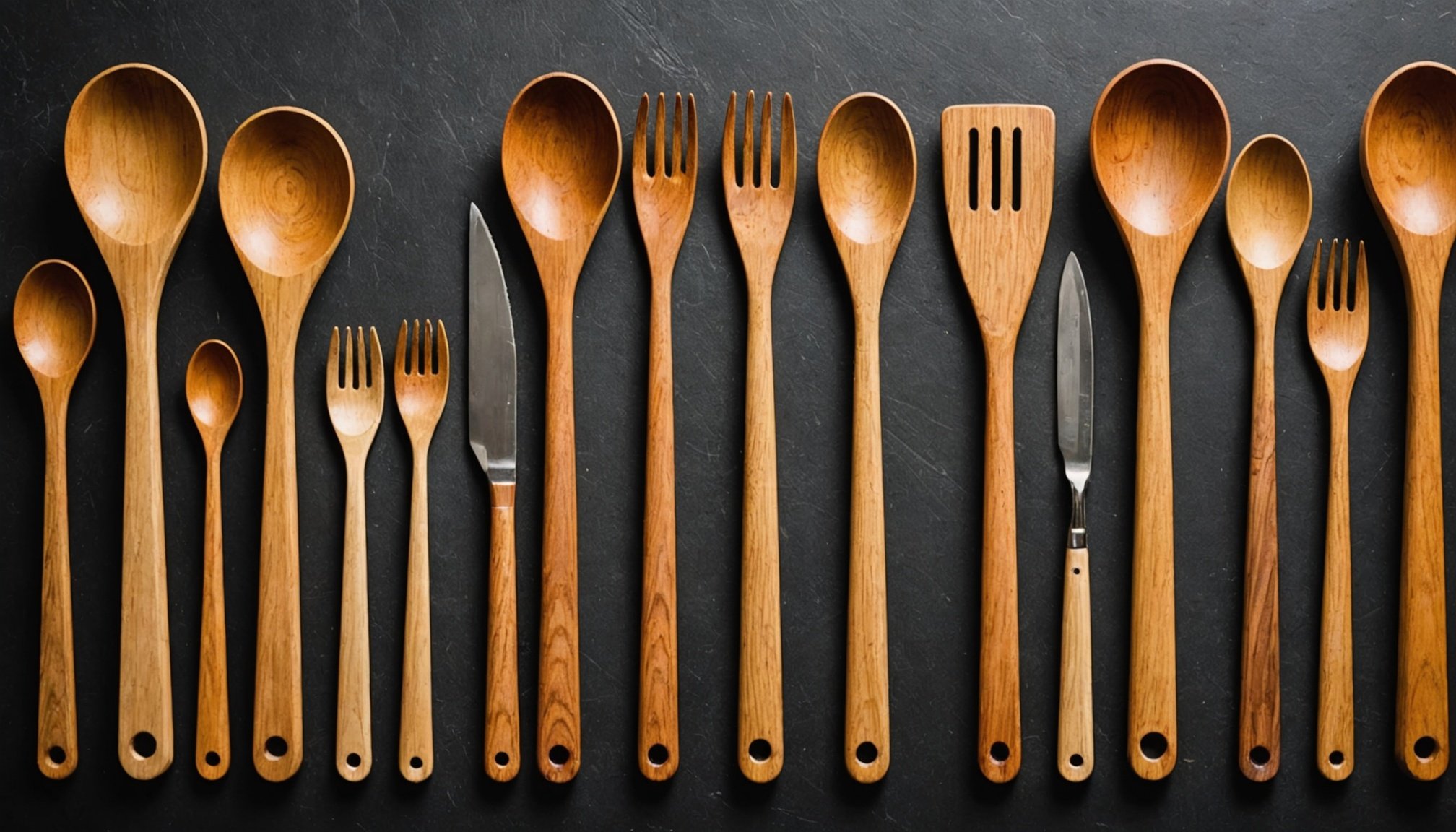Importance of Wood Care in the Kitchen
Maintaining wooden kitchen utensils is crucial due to several key benefits. Firstly, well-cared-for woodware can last for years, offering a durable solution for your culinary needs. Routinely applying mineral oil or a similar conditioner helps prevent cracking and drying, preserving the utensils’ functionality and aesthetic appeal.
On the flip side, neglecting wooden utensil maintenance often leads to common issues such as warping or splitting. Cracks in the wood can harbour bacteria and moisture, posing a risk to both food safety and the integrity of the utensils. This, in turn, can negatively impact the taste of food, as flavours may blend or spoil due to contamination.
Also read : Maximize your kitchen”s charm: expert tips for positioning your ideal wine cooler
Ensuring the longevity and hygiene of your kitchen tools demands regular and meticulous care. This involves cleaning utensils immediately after use with mild soap and warm water, avoiding prolonged soaking or dishwashers. With proper attention, wooden utensils such as spoons, cutting boards, and spatulas remain hygienic and effective for safe and enjoyable cooking experiences.
Investing in wooden kitchen utensil maintenance not only enhances their durability but also safeguards the quality of your dishes, reinforcing the importance of wood care in your kitchen practices.
Also to discover : Unleashing the benefits: transform your kitchen design with recycled materials
Cleaning Techniques for Wooden Utensils
Caring for wooden utensils requires understanding the best practices to maintain their appearance and functionality. These items need a gentle touch due to their distinct material characteristics.
Basic Cleaning Steps
Start by rinsing the wooden utensil immediately after use. Use warm water to remove any food particles. Avoid soaking as prolonged exposure to water can cause warping or cracking. Instead, lightly scrub with a mild soap and a soft sponge. Ensuring this routine after each use helps in maintaining wood quality.
Deep Cleaning Methods
For more thorough cleaning, a combination of vinegar and water can be highly effective. Mix equal parts of both and apply with a soft cloth. Rinse thoroughly afterward to remove any acidic residue. This method helps in eliminating odours and bacteria without eroding the wood surface.
Avoiding Common Mistakes
Key considerations include avoiding dishwashers and never using harsh chemicals. High heat and aggressive detergents damage the wood. Regular oiling can help keep the wood conditioned, ideally applying mineral oil after cleaning. This preserves the natural texture and prevents drying out. Following these simple guidelines ensures your wooden utensils serve reliably.
Conditioning Wooden Kitchen Utensils
Conditioning wooden utensils is crucial to maintain their durability and aesthetic appeal. This process involves applying oils or waxes to protect the wood from drying out, cracking, or absorbing unwanted food odours. By nurturing the wood, you preserve the utensil’s functionality and extend its lifespan.
Optimal Oils for Conditioning
Choosing the right oils is essential. Food-safe oils like mineral oil, beeswax, and coconut oil are excellent for conditioning wooden utensils. These oils penetrate the wood effectively, creating a protective barrier that locks in moisture while keeping external elements at bay. Avoid using vegetable oils, as they can turn rancid over time, leading to unpleasant smells and a sticky residue.
Conditioning Frequency
For optimal results, condition wooden kitchen tools regularly. It is advised to apply oil every three to four weeks, depending on use frequency. Should the wood appear dull or start showing signs of dryness, it might indicate a need for immediate conditioning. Regular maintenance ensures the utensils remain in prime condition, offering the best performance and aesthetic effect.
Consistent care through conditioning not only maintains the utensil’s quality but also enhances the cooking experience by providing reliable and aesthetically pleasing tools.
Proper Storage for Longevity
Proper storage is essential when it comes to storing wooden utensils. Their longevity largely depends on how they are stored, as environmental factors can cause deterioration over time.
Ideal Storage Solutions
When it comes to storing wooden utensils, both countertop and drawer options are viable. However, countertop storage should allow air circulation, such as in open stands or with hooks. For drawers, use dividers to prevent unnecessary movement and potential damage.
Avoiding Temperature Extremes
Wooden utensils are sensitive to temperature extremes. Keeping them away from heat sources such as ovens or direct sunlight helps maintain their integrity. Ensure that storage areas are neither too hot nor too cold, as fluctuating temperatures can lead to warping and cracking.
Maintaining Humidity Levels
Humidity plays a crucial role in the longevity of wooden utensils. Use hygrometers to monitor and maintain a consistent humidity level of around 50%. If humidity levels fluctuate, silica gel packs or small dehumidifiers can be effective tools in controlling the environment. Remember, storing wooden utensils in excessively dry or humid conditions can cause them to shrink or swell, respectively.
Addressing Common Issues
When dealing with problems with wooden utensils, recognising signs of wear and tear is crucial to ensuring their longevity. Common indicators include cracks, warping, and discolouration. These signs suggest that the utensil is approaching the end of its life or requires immediate care.
If minor damage is evident, simple repairs can extend the life of your wooden tools. For instance, small cracks might be remedied with food-grade mineral oil, which can also restore some moisture to the utensil. Sanding the surface can prevent splinters and smooth out any rough spots. It’s essential to regularly inspect your utensils and address minor issues promptly, as this can help avoid more significant problems down the line.
Preventive measures are key to maintaining wooden utensils. To ward off cracking and warping, do not soak wooden items in water for extended periods. Instead, wash promptly and let them air-dry in a well-ventilated area. Additionally, applying a thin coat of mineral oil periodically not only nourishes the wood but also helps to keep it supple. With these practices, you ensure that your wooden utensils remain functional and aesthetically pleasing for as long as possible.
Recommended Products for Care
When it comes to maintaining wooden utensils, selecting the best products ensures longevity and functionality.
Top Cleaning Supplies
To keep wooden utensils in prime condition, selecting suitable cleaning supplies is crucial. Mild detergent and warm water form the foundation of routine cleaning. Avoid soaking wooden utensils as excess moisture may cause warping or cracking. Additionally, a soft sponge or microfiber cloth is recommended over abrasive pads to prevent scratches.
Best Conditioning Oils
Conditioning oils play a pivotal role in maintaining wooden utensils’ durability and appearance. Mineral oil, food-grade and odourless, is a popular choice for its non-toxic properties. It penetrates the wood, preventing drying and cracking. For a more natural alternative, coconut oil offers similar benefits while imparting a subtle aroma. Consistent application keeps utensils looking rejuvenated.
Essential Tools for Maintenance
Essential tools for wooden utensil care include a wooden scraper or bamboo brush for gentle cleaning without damaging the surface. Additionally, a soft buffing cloth aids in evenly applying oils, ensuring thorough conditioning. Maintaining a well-rounded toolkit maximizes the effectiveness of your care routine, supporting the longevity of your best products for wooden utensils.
Expert Insights and User Testimonials
Gain understanding from expert advice on maintaining your wooden utensils. Engaging with accomplished woodworkers and professional chefs offers valuable insights. These experts often highlight that the durability of wooden utensils is heavily influenced by consistent care.
Woodworkers frequently recommend regular oiling to maintain the luster and integrity of your utensils. This simple step serves a dual purpose: it prevents the wood from drying out and reduces the risk of cracking. A chef we spoke with emphasized the importance of proper washing techniques. Avoiding dishwashers and using mild soap can prolong the lifespan of your utensils significantly.
Real-life user experiences reinforce this expert advice. One home cook shared that adopting these practices extended the life of her wooden spoon collection beyond a decade. Simple adjustments, like storing utensils upright and not leaving them submerged in water, were crucial.
When it comes to the lifespan of wooden utensils, it’s the small, consistent actions that matter. By following this expert advice, not only can you ensure longevity but also retain the natural beauty and functionality of these kitchen essentials. Proper care is critical, and user testimonials reflect positive impacts with this approach.











